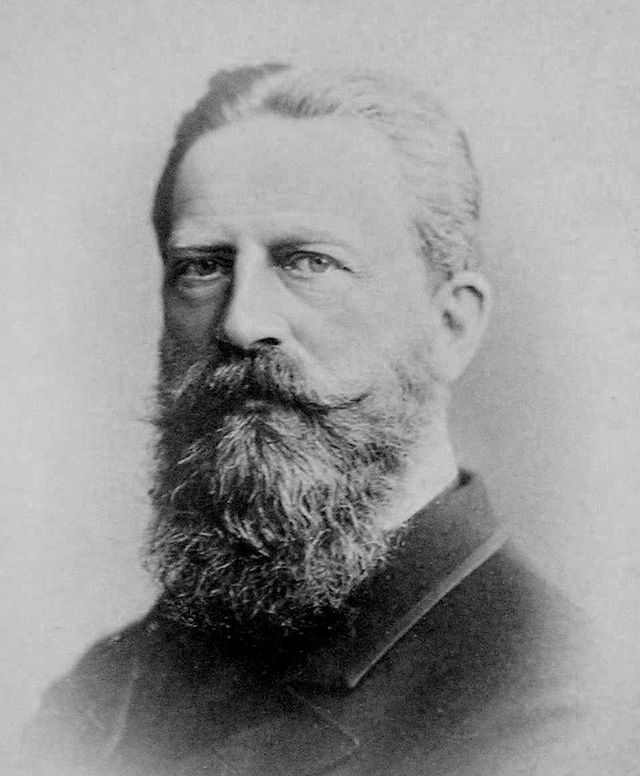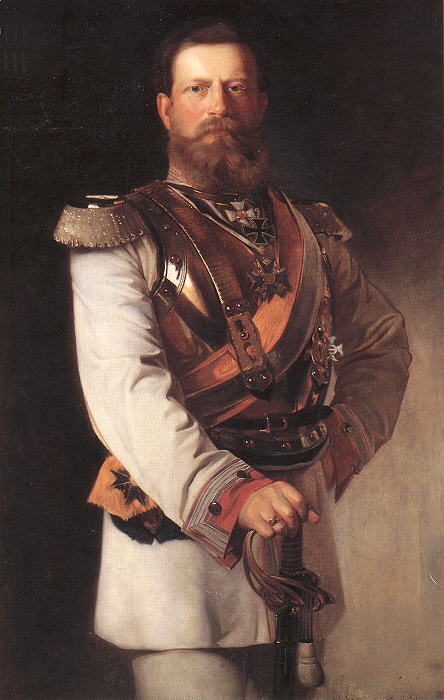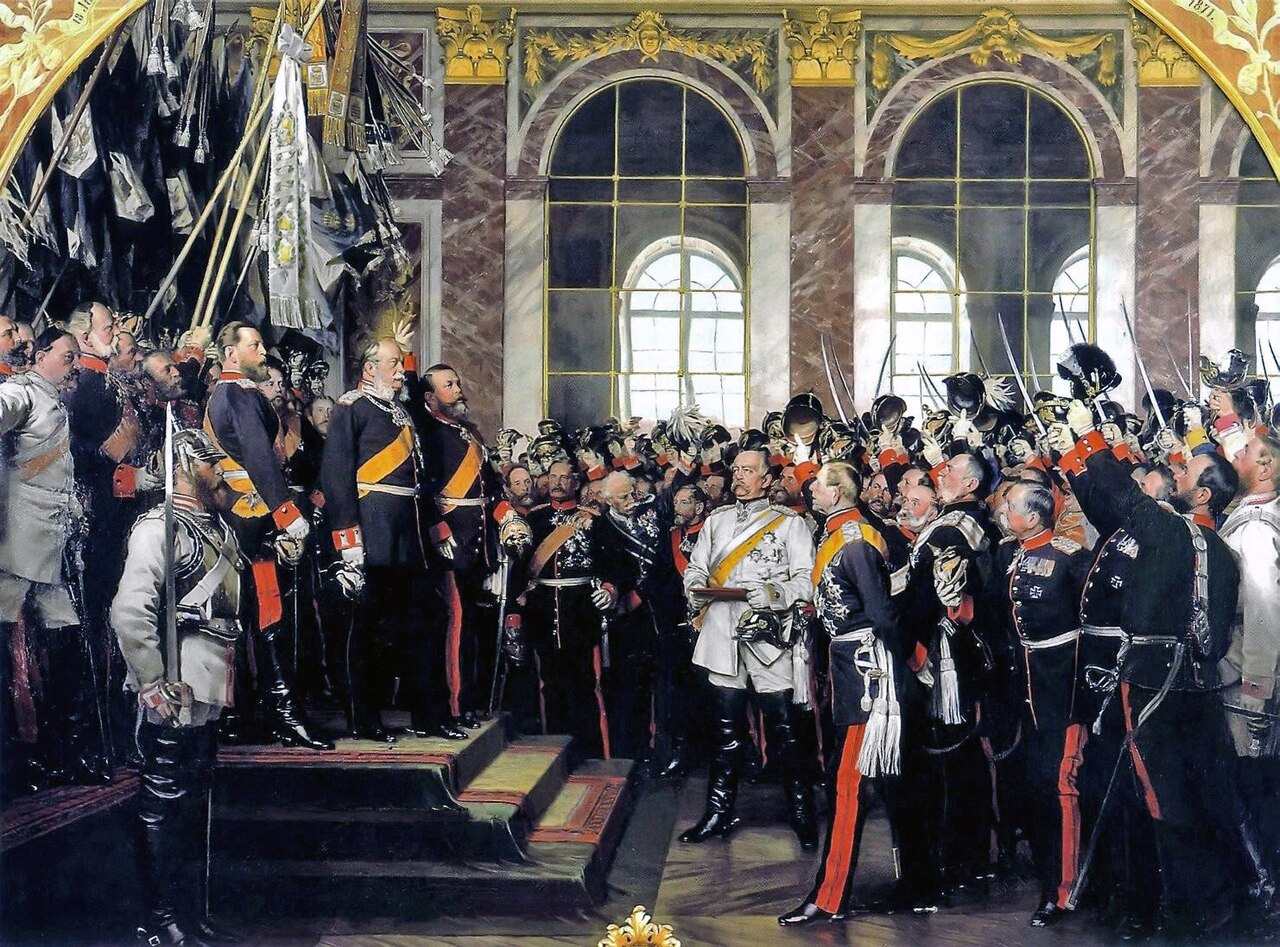by Susan Flantzer © Unofficial Royalty 2015
Kingdom of Prussia: The Protestant Franconian branch of the House of Hohenzollern ruled as Margraves of Brandenburg, Dukes of Prussia, Electors of Brandenburg, Kings of Prussia from 1415 until 1918. In November 1700, in exchange for supporting the Holy Roman Empire in the Spanish War of Succession, Leopold I, Holy Roman Emperor agreed to allow Friedrich III, Duke of Prussia, Elector of Brandenburg to make Prussia a kingdom and become its first king. In the aftermath of World War I, Prussia had a revolution that resulted in the replacement of the monarchy with a republic. Wilhelm II, German Emperor, King of Prussia abdicated on November 9, 1918.
The Kingdom of Prussia had territory that today is part of Belgium, the Czech Republic, Denmark, Germany, Lithuania, the Netherlands, Poland, Russia, and Switzerland. All or parts of the following states of today’s Germany were part of the Kingdom of Prussia: Brandenburg, Hesse, Lower Saxony, North Rhine-Westphalia, Saarland, Saxony-Anhalt, and Schleswig-Holstein.
********************

Friedrich III, German Emperor, King of Prussia; Credit – Wikipedia
Friedrich III, German Emperor, King of Prussia was born at the Neues Palais in Potsdam, Kingdom of Prussia, now in the German state of Brandenburg, on October 18, 1831. The elder of the two children of the future Wilhelm I, German Emperor, King of Prussia and Augusta of Saxe-Weimar-Eisenach, he was given the names Friedrich Wilhelm Nikolaus Karl and was known in the family as Fritz.
Fritz had one sister:
- Princess Louise of Prussia, Grand Duchess of Baden (1838–1923), married Friedrich I, Grand Duke of Baden; had two sons and one daughter including Friedrich II, Grand Duke of Baden and Victoria of Baden who married King Gustav V of Sweden.
Fritz’s father Wilhelm had been raised in the strict military traditions of the Hohenzollerns, the ruling house of Prussia. However, Fritz’s mother Augusta grew up in the more intellectual and artistic atmosphere of Saxe-Weimar where she received an excellent education with liberal views. Among the people, Augusta was exposed to during her childhood were the famous German writer Johann Wolfgang von Goethe, composer Johann Nepomuk Hummel, and artist Louise Seidler. Because of their different views, Fritz’s parents did not have a happy marriage and this unhappiness affected their children.

Fritz, circa 1841; Credit – Wikipedia
Fritz received both a military and a classical education. In 1844, archaeologist and historian Ernst Curtius was appointed his private tutor, and Fritz studied history, geography, physics, music, and religion. He had a talent for foreign languages, studying Latin and becoming fluent in English and French. Fritz also studied the traditional Hohenzollern areas of fencing, riding, gymnastics, and practical craft skills such as carpentry, book printing, and bookbinding. Colonel Karl Georg Friedrich Johann von Unruh oversaw Fritz’s military education. Probably at his mother’s suggestion, Fritz interrupted his military training at the age of 18 to study history, politics, law, and public policy at the University of Bonn. His time at the University of Bonn helped solidify his liberal, reforming beliefs.
In 1851, Fritz and his family were invited to England by Queen Victoria to visit the Great Exhibition in Hyde Park, London which her husband Prince Albert was instrumental in organizing. On a visit to the Great Exhibition, Queen Victoria’s eldest child, ten-year-old Victoria, Princess Royal (called Vicky), was allowed to accompany the group as a companion to Fritz’s sister Louise. Despite being only ten years old, Vicky made an impression on Fritz, who was ten years older. Vicky’s father Prince Albert saw Fritz as a partner who shared his liberal political views. Fritz spent four weeks in England and was impressed by the British Royal Family. Unlike his own parents, Queen Victoria and Prince Albert were warm and loving toward each other and had a family life that was far different from the rigor and formality of the Prussian court. After Fritz returned to Prussia, he and Vicky began to write to each other regularly. In a letter to her uncle Leopold I, King of the Belgians, Queen Victoria expressed the hope that Fritz and Vicky would form a closer bond.
Four years later, in 1855, Fritz was invited back to England by Victoria and Albert for a visit to their Scottish home Balmoral. Both the British and Prussian royal families expected Fritz and Vicky would decide their future together. Fritz was second in line to the Prussian throne after his father, who was expected to succeed his childless brother. Even though the marriage would not be universally popular in either country, Vicky and Fritz agreed to marry each other. Their marriage would be one of the most romantic of royal marriages. Because Vicky was so young, her parents decreed that the wedding would have to wait until Vicky was 17 years old. Fritz and Vicky were married on Monday, January 25, 1858, in the Chapel Royal of St. James’ Palace in London, England, where the bride’s parents had been married.

Fritz and Vicky, circa 1858; Credit – Wikipedia
Vicky and Fritz had eight children:
- Wilhelm II, German Emperor (1859 –1941) married (1) Princess Auguste Viktoria of Schleswig-Holstein, had children (2) Princess Hermine Reuss of Greiz, no children
- Charlotte of Prussia (1860 –1919) married Bernhard III, Duke of Saxe-Meiningen, had children
- Heinrich of Prussia (1862 –1929) married his first cousin Princess Irene of Hesse and by Rhine, had children
- Sigismund of Prussia (1864 – 1866) died of meningitis at 21 months
- Victoria of Prussia (1866 – 1929) married (1) Prince Adolf of Schaumburg-Lippe, no children (2) Alexander Zoubkov, no children
- Waldemar of Prussia (1868 – 1879) died of diphtheria at age 11
- Sophie of Prussia (1870 – 1932) married King Constantine I of Greece, had children
- Margarete of Prussia (1872 –1954) married Prince Friedrich Karl of Hesse, had children

Fritz and Vicky’s family; Credit – Wikipedia
Vicky had also received a liberal education and shared her husband’s views. Prince Albert and Queen Victoria ardently hoped that this marriage would make the ties between London and Berlin closer, and lead to a unified and liberal Germany. However, Vicky and Fritz were politically isolated and their liberal and Anglophile views clashed with the authoritarian ideas of the Minister-President of Prussia and later Chancellor, Otto von Bismarck. Despite Fritz and Vicky’s efforts to educate their eldest son, the future German Emperor Wilhelm II, about the benefits of democracy, he favored his German tutors’ views of autocratic rule and became alienated from his parents.
On January 2, 1861, Fritz’s father became King of Prussia and Fritz became Crown Prince, a title he held for 27 years. King Wilhelm I continued with his conservative ideas and frequently clashed with his son Fritz who believed in an “essential liberal policy for internal and foreign affairs.” The appointment of Otto von Bismarck as Minister-President of Prussia made matters worse. Bismarck was an authoritarian who saw nothing wrong with ignoring or overruling the Landtag, the Prussian legislative body. On June 4, 1863, Fritz vehemently protested Bismarck’s restrictions on freedom of the press at a city hall reception in Danzig, making Bismarck his enemy and his father extremely angry. For the rest of his father’s reign, Fritz was excluded from any position of political power and relegated to representing his father at ceremonies, weddings, and celebrations, such as Queen Victoria’s Golden Jubilee in 1887.

Fritz as Crown Prince in 1874; Credit – Wikipedia
Despite his hatred of war and his belief that there should be bloodless “moral conquests,” Fritz served in the Second Schleswig War, the Austro-Prussian War, and the Franco-Prussian War. Once the wars had started, Fritz supported the Prussian military wholeheartedly and had command positions. Since he had no political influence, these were the only opportunities to prove himself. In 1871, following Prussia’s victories, the German states were united into the German Empire, with Fritz’s father Wilhelm I as the German Emperor (Kaiser) and Fritz as heir-apparent. Fritz sided with the empire’s liberals in their opposition to the expansion of the German Empire’s army and became involved in many public works projects, such as the establishment of schools and churches.

Fritz’s father’s proclamation as German Emperor in the Hall of Mirror at the Palace of Versailles, Fritz is standing behind his father on the steps; Credit – Wikipedia
The year 1888 is called “The Year of Three Emperors” in German history. Fritz’s father Wilhelm I died on March 9, 1888, and Fritz succeeded him as Friedrich III. However, Fritz was already gravely ill with cancer of the larynx and could no longer speak, but despite this, he did his best to fulfill his obligations as Emperor. In May 1888, Fritz lamented, “I cannot die … What would happen to Germany?” Fritz reigned for only 99 days, dying at the age of 56 on June 15, 1888, and was buried in the Kaiser Friedrich Mausoleum at the Friedenskirche in Potsdam, Kingdom of Prussia, now in Brandenburg, Germany.
As for what happened to Germany, Fritz was succeeded by his impulsive and pompous son Wilhelm II, who brought the German Empire into World War I which eventually caused the collapse of all the German Empire’s constituent states. Wilhelm II was an ineffective war leader, who abdicated in November 1918 and fled to exile in the Netherlands.

Tomb of Friedrich III, German Emperor and Victoria, Princess Royal; Credit – findagrave.com
This article is the intellectual property of Unofficial Royalty and is NOT TO BE COPIED, EDITED, OR POSTED IN ANY FORM ON ANOTHER WEBSITE under any circumstances. It is permissible to use a link that directs to Unofficial Royalty.
Prussia Resources at Unofficial Royalty
